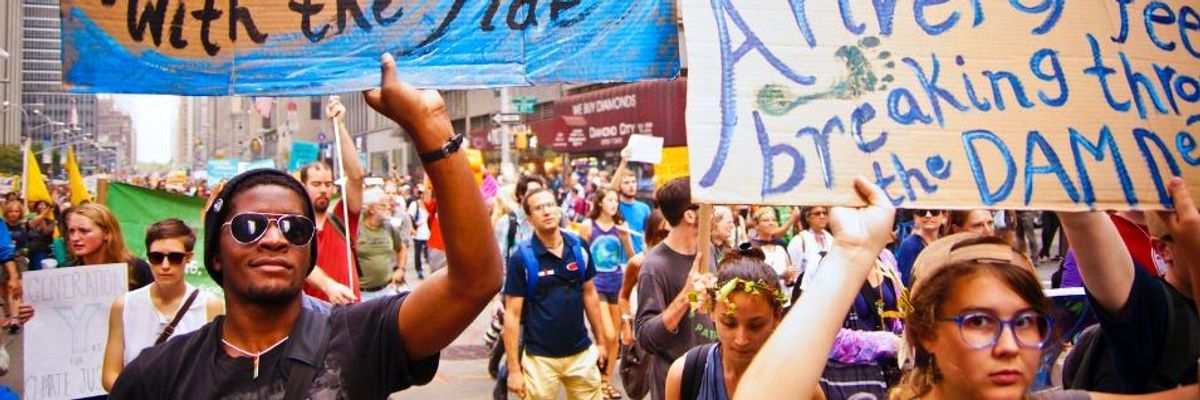A majority of Americans believe climate change is a serious problem and support government action to reduce greenhouse gas emissions, a new poll (pdf) by Monmouth University released Tuesday reveals.
A full 70 percent of respondents say the world is "undergoing a change leading to more extreme weather patterns and sea level rise," with about 60 percent saying they consider climate change to be a "very" or "somewhat" serious problem. And 64 percent support enacting policies to address the problem.
The poll also revealed a partisan divide between respondents, as a majority of those who said climate change is a serious issue identified as Democrats or Independents, while 43 percent of Republicans said they did not believe in it at all.
"The data exposes the extent to which this has become a partisan political issue in the U.S. rather than a scientific issue," said Monmouth University Urban Coast Institute director Tony MacDonald.
Of those who believe in climate change, 34 percent also believe the crisis is caused by human actions, while 22 percent believe it is driven by nature.
Nonetheless, MacDonald said the overwhelming response in support of climate action shows that "Americans believe we are all very much in this together. Nearly two-thirds of all respondents and three quarters of younger adults want action from our leaders, even if some in Congress don't believe there's a problem."
Rising sea levels are particularly worrying to a plurality of respondents, 47 percent of whom say it threatens countries throughout the world, including the U.S., and will affect both coastal and inland communities. However, residents of coastal states were more likely than inland residents to say the impact of rising sea levels will hit the U.S. as hard as other countries.
"As unusual weather events become more common, the American public recognizes that the risks from climate change and sea level rise are widespread," MacDonald continued. "Superstorm Sandy's landfall in New Jersey was just one stark example that shore communities aren't the only ones affected. The flooding of inland areas and the impacts on critical energy and transportation infrastructure, including disruption of trade at our ports, caused problems that were felt throughout the state and the nation."
As MacDonald told the Ashbury Park Press on Tuesday, "There's a strong consensus of the problem and the need to take action."

